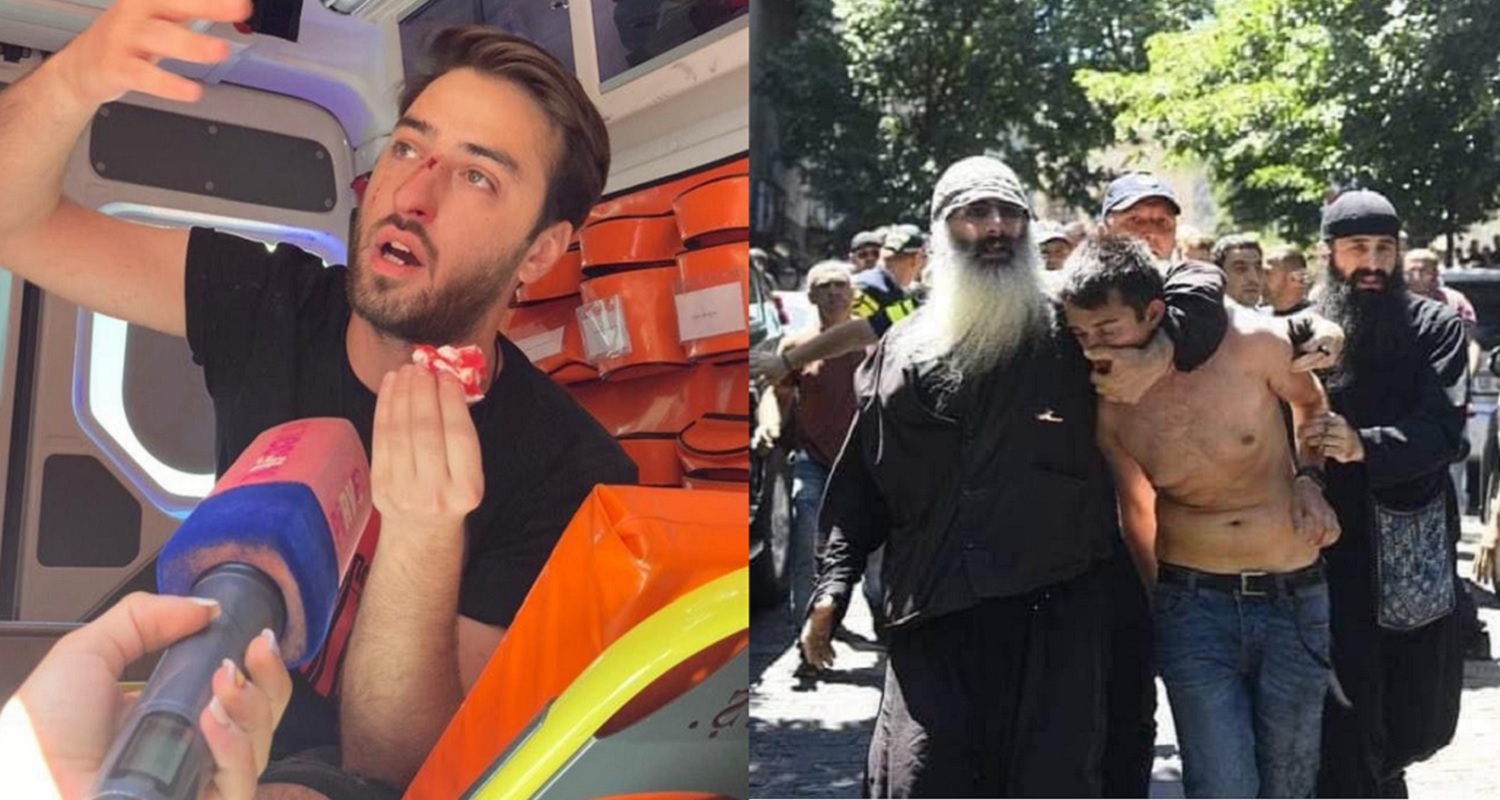Tbilisi Pride cancelled after violent far-right homophobes attack Pride office
"The government deployed inadequately small numbers of policemen," an Amnesty International rep said.

Words: Jamie Tabberer; picture: Twitter/@TbilisiPride/@JFJfund
A Pride parade in the country of Georgia has been cancelled after far-right protestors attacked organisers, activists and journalists.
Violent scenes in the capital, Tbilisi, saw attackers scale a three-story building that serves as the Pride headquarters.
One journalist was reportedly beaten with a stick while others had cameras and equipment stolen.
According to a tweet by the Global Network for Press Freedom: “At least 40 media workers [are] now reported to have been injured amidst widespread violence by far-right & anti-LGTBQ groups during anti-@TbilisiPride protests today, with eight hospitalised & one undergoing surgery.
“All those receiving treatment are in stable condition.”
🇬🇪 UPDATE: At least 40 media workers now reported to have been injured amidst widespread violence by far-right & anti-LGTBQ groups during anti-@TbilisiPride protests today, with eight hospitalised & one undergoing surgery. All those receiving treatment are in stable condition pic.twitter.com/6rkgOEc4As
— IPI – The Global Network for Press Freedom (@globalfreemedia) July 5, 2021
Georgian Prime Minister Irakli Garibashvili called the Pride march [as per The Guardian] “unreasonable” because it provoked “civic confronation.”
“The government deployed inadequately small numbers of policemen”
Tbilisi Pride said in a statement: “War was declared against civil society and democratic values. The actions of the government have clearly shown that they don’t want to perform its direct duty. The inaction of the executive power has put the health and lives of Georgian citizens in real danger.”
Denis Krivosheev, Amnesty International’s Deputy Director for Eastern Europe and Central Asia, commented: “The violence against Tbilisi Pride organizers, activists and journalists was as lamentable as it was predictable.
“The Georgian authorities are responsible for failing to ensure their safety and their rights to freedom of expression and peaceful assembly. Instead of planning for this turn of events and providing a robust response to violence, the government deployed inadequately small numbers of policemen who were only reacting to violent attacks, rather than providing an organized protection for LGBTI activists.”
❗️Footage of hate groups attacking our office.. horrific and no police presence..
❓Where was the state today?! Where were governance and democracy?! Absolute failure of state institutions! #Georgia #TbilisiPride21 #TbilisiPride2021 pic.twitter.com/9ctysIEoIb
— Giorgi Tabagari (@Tabagari) July 5, 2021
Krivosheev added: “The authorities have the nerve to put the responsibility for these homophobic attacks on Pride organizers, by urging them to cancel the event rather than offering protection. They also consistently fail in their duties by not properly investigating incidents of violence and bringing those suspected of responsibility to account.”
Georgia shares a border with Russia, Azerbaijan, Armenia and Turkey; the capital, Tbilisi is home to over one million people. The country is located in the Caucasus region, at the intersection of Eastern Europe and Western Asia.
Gay sex was legalised in the country in 2000.
